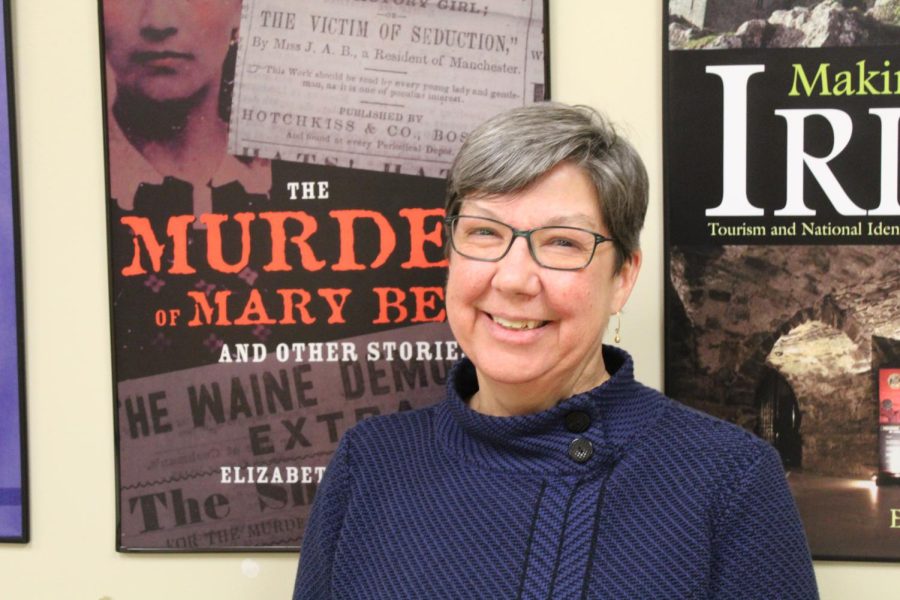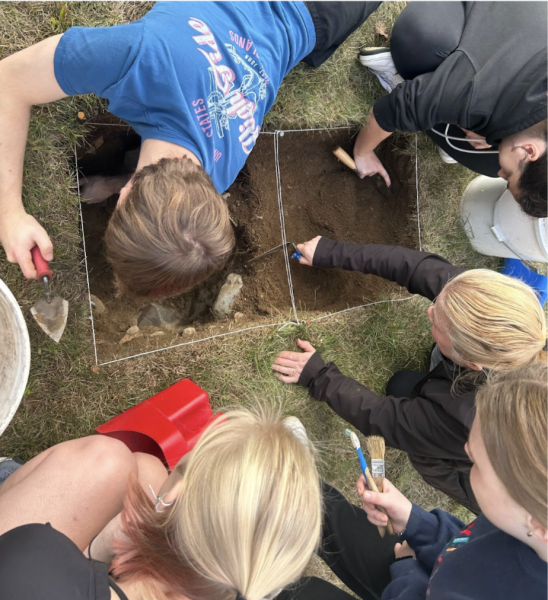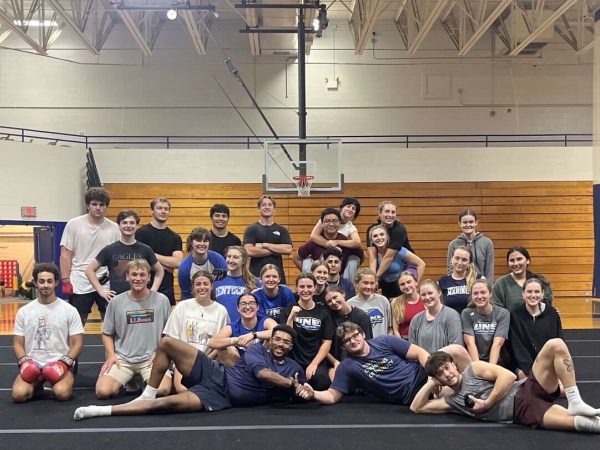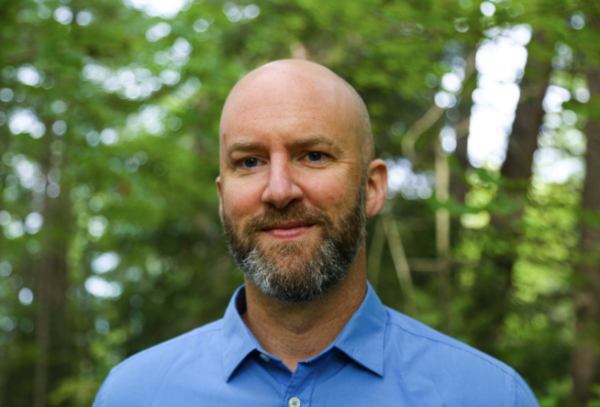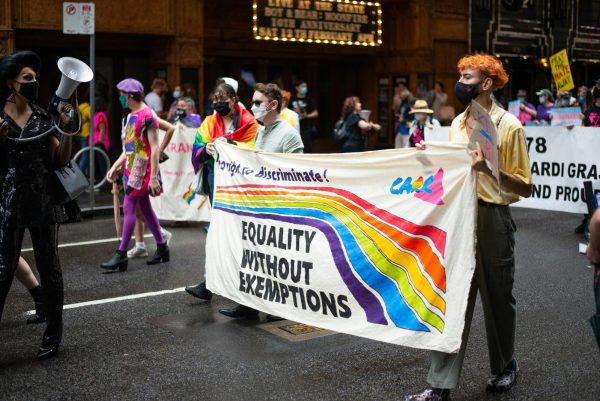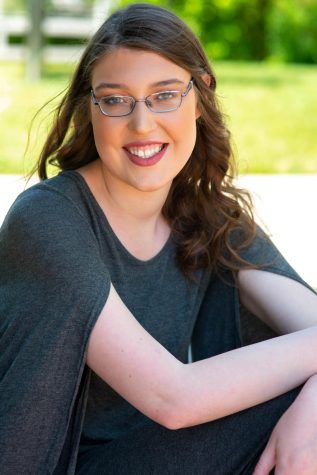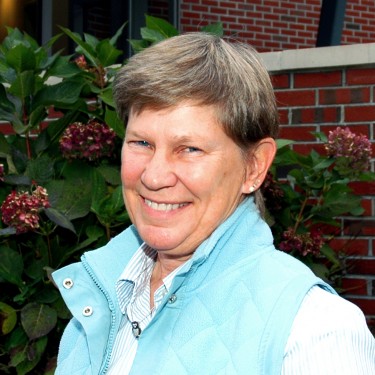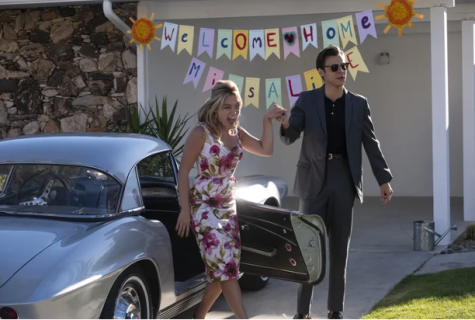Recognizing Women’s History and Literature at UNE
With Women’s History Month coming to an end, Professor Elizabeth DeWolfe shares the evolution of Women and Gender Studies at the university, and the representation of female literature UNE holds.
Professor Elizabeth DeWolfe
If one person could encapsulate the love and appreciation for the women of our past, it would be Professor Elizabeth DeWolfe. She began her time at UNE in 1996, and has since rediscovered and transcended the happenings and importance of women in America. Some of her courses include: College Girls, Sex in The City, and Women in the Ancient World, along with multiple interdisciplinary courses taught by other professors, including: Women in Film, Women in Health, and Gender in Sports.
When asked what inspired her niche of teaching American women’s history, DeWolfe replied, “I was sitting in my highschool U.S. history class, and as you know that’s about all the big guys and what they did. So it really made me think, has anyone like me ever done anything interesting?”
She answers this question now,
“Women have always been a part of history, and they have done things. It is my job to make visible what is already present. I find that UNE is the perfect place for that. Our legacy consists of documents such as the Maine Women’s Writers Collection and the Cushing Collection of World War Two letters. The history is here, we just have to recognize it.”
The Maine Women’s Writers Collection is a treasure trove of literature written by women in New England, founded in 1959. The collection includes memorabilia, letters, photographs, and other regions of creative works. Its focus is to highlight the happenings of women in Maine and New England regions. For more information about the collection, students can visit the UNE website (https://library.une.edu/mwwc/ ).
Not only does DeWolfe have passion for the women of the past, she was also the Co-founder of the Women and Gender Studies Program at UNE. She describes her Co-founder, Professor Jennifer Tuttle, as her “partner in crime”.
“There have always been courses taught about women at UNE. What Professor Tuttle and I began seeing as we taught these classes was the same students signing up for our classes while being in other majors, so we thought, how could they earn credit for it? If a student had already taken so many classes in this discipline then it should be recognized. Therefore, came the major and minor programs.”
If not through classes, there are multiple other ways students can engage with the writing contribution of women. DeWolfe was asked to share some other courses of engagement and provided a plethora of options. Students have the options of internships, one being with the Maine Women’s Writers Collection in Portland. If interested, students can contact the current curator of the collection Sarah Baker.
Other areas of opportunity for students interested in learning more about women include our own library resources. The Jack S. Ketchum Library not only holds Cushing Collection, but has an extensive satellite archive for students to find literature and artifacts that can then be used for classes or personal interest. There is also the access to have works from the Portland Campus transferred down to Biddeford for use. For this resource students may also contact Sarah Baker for further information.
Lastly, DeWolfe welcomes students to talk with her or other colleagues in her department, or to visit the Portland Campus themselves. With being a half hour from Biddeford campus and shuttles going daily, there is easy access for students to connect with findings of history. If you don’t feel like traveling, there is also the Cushing Collection located within our George Bush Memorial room (inside Jack S. Ketchum Library).
DeWolfe announced her excitement for the fact that the program will be twenty years old in 2024,
“We will be celebrating!”
Also being added to the Womens and Gender Studies program is the introduction of Queer Studies. DeWolfe shares that there will be a coming name change to the program also to include the concept of sexuality within gender. She shares her thoughts on this new curriculum,
“This is the beauty of academia, because as new professors come in it creates a multigenerational perspective at the University. It livens the curriculum and provides students with new ways and things to learn. What I learned during my studies some time ago is not the same as students from 10 years ago or even today.”
Looking towards the future, DeWolfe and her colleagues are excited about the expansion of this program. Students should look out for new courses being added to the curriculum, visit the Portland campus, or our own Ketchum Library to engage with women and their histories.
She leaves students with recommendations of women’s literature listed below:
The Handmaid’s Tale – Margaret Atwood
The Book of Longing – Sue Monk Kidd
Circe – Madeline Miller
The Secret Lives of Church Ladies – Deesha Phillyaw



